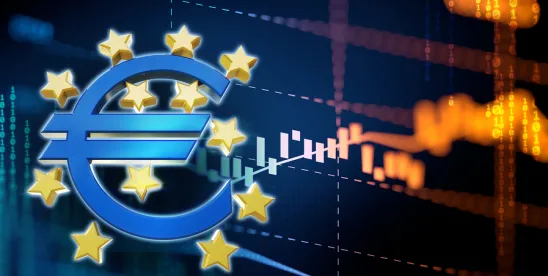A summary of the European Commission’s Policy Document on standard essential patents (SEPs).
After considerable preparations and consultation the F has on 29 November 2017 issued a Communication [1] “setting out the EU approach to standard essential patents”. This Communication is part of the wider Europe’s Digital Single Market initiative. Notably, however, this long-awaited paper is not likely to change the current landscape of FRAND litigation and licensing, and intentionally does not address the most controversial issues of the current debate.
The Communication attracted significant controversy within the Commission’s services (including DG Competition, DG Grow, DG Connect) as well as intense lobbying by stakeholders. Key issues initially thought to be included in the paper ultimately were not addressed, notably use-based licensing and licensing-to-all. The Commission defers these issues to an expert group which it will set up to gather industry practices, although without committing to providing further guidance in this area. Given the significant impact any more substantive statements on these topics would have had on either side of the industry, no news is probably good news.
Transparency and Access to Information
In the first section entitled increasing transparency on SEP exposure, the Commission sets out its views on how to increase transparency and access to relevant information relating to SEPs. This is probably the most notable part of the document, as the Commission addresses fundamental requirements for FRAND license negotiations which will hardly be controversial.
This section is partly addressed to SDOs who are encouraged to provide greater transparency, quality and accessibility in their databases and in the way they collect data. The Commission also addresses SEP owners and states that they “necessarily have to invest in substantiating to SEP users why patents from the patent holder’s portfolio are essential of the standard or how these patent are being infringed”. This should be achieved through more up-to-date and precise declarations. The Commission points out that 73% of patents declared essential in ETSI are granted after the standard is set. Final patents might differ considerably from a declared patent application and this should be addressed by a dynamic declaration process and an ongoing obligation to keep records up to date. In addition, the declared SEP should be linked to the relevant section in the standard and interested parties should be given contact details of the SEP owner to facilitate licensing. Finally, SDOs should encourage parties to publish details on judgements relating to litigated SEPs.
The Commission also points to a de facto presumption of essentiality resulting from recorded declarations. It identifies the need of a higher level of scrutiny on essentiality claims. The Commission however falls short of making a concrete proposal and merely states that any benefit of an increased scrutiny of essentiality (by an independent technical expert) must be balanced against the cost associated with such a review.
Overall, the Commission identifies in this section important elements of FRAND negotiations without providing a definitive view on whether (and how) these transparency measures should be applied to existing standards or rather only to new and key standards such as 5G. The Commission might well address these issues directly with SDOs in future. It is likely that it will have to deal with individual complaints against SEP owners who allegedly fall short of the transparency requirements set out in this Communication.
FRAND
In the second section the Commission recognizes the divergence of interpretation of the meaning of FRAND and offers “signposts” with a view to open a discussion on this subject encouraging stakeholders to engage in a dialogue with each other and the Commission on the meaning of FRAND. This is not a new topic and it remains to be seen which turn the discussion is going to take with the Commission’s involvement.
The Commission lists four principles which “should be taken into account” to assist with the valuation of SEPs without providing a definitive view on the matter. Licensing terms should relate to the economic value of the patented technology and “in principle should not include any element resulting from the decision to include the technology in the standard”. The value of the technology should be based on its present economic value irrespective of the market success of the product while also providing adequate incentives to innovate. The Commission favors a top-down approach in evaluating FRAND value where the value is a proportion of an aggregate rate for the standard assessing the overall added value of the technology. In how far deviation from these evaluation methods will amount to possible infringements and antitrust scrutiny remains to be seen.
In terms of non-discrimination the Commission endorses the position taken by Mr. Justice Birss in the Unwired Planet v Huawei case ([2017] EWHC 711 (Pat)), namely that there should be no discrimination between implementers that are “similarly situated” and suggests a case-by-case, or sector-by-sector approach. The Commission recognizes that those involved in FRAND licensing and litigation have the greatest expertise in this area, and to capture the knowledge for the benefit of the rest of the industry, it will set up an expert group which will look at FRAND licensing practices in more depth. This will not likely result in another policy document but rather assist in creating greater transparency in the market.
Enforcement of SEPs
In the third section the Commission reiterates the limits antitrust law imposes on the use of IP injunctions defined most recently by the CJEU in the case Huawei/ZTE (C-170/13) while also referring to the CJEU’s rules on the ping-pong between SEP owners and willing licensees. The Commission will continue to work with stakeholders to develop and use methodologies which allow for efficient and effective SEP litigation as well as mediation and ADR.
Other initiatives announced today include new Guidance on the Directive on the enforcement of intellectual property rights (IPRED), measures against counterfeiting and piracy, initiatives to reduce the volume of counterfeited goods reaching the EU market. The press release can be found here.
Comment
This Communication is the result of a lengthy debate between different Commission services and key stakeholders of the industry, and the lack of clearer policy statements is ample evidence of the high level of controversy continuing to surround SEPs and FRAND licensing.
The Commission emphasizes the importance of the application of EU competition law to SEPs and the concept of FRAND. It has been careful in not trying to steer the debate in favor of one side of the industry. This stands in contrast to a recent statement by the US DOJ’s new assistant attorney general Makan Delrahim, found here.
The Communication will no doubt be referred to by SEP owners and potential licensees in national litigation to argue their case and judges will be asked to assess the content of the Communication. While the Commission’s new Communication may therefore be of some help, the parties to FRAND negotiations will have to continue to carefully self-assess their behavior on the basis of existing case law and guidance or risk falling under the scrutiny of judges and antitrust authorities who will assess anticompetitive effects of non-FRAND behavior. The Commission will remain an active enforcer in this area and it is also encouraging to see that more and more judges on both sides of the Atlantic take the challenge to rule in this complex area and their judgments will add to the legal certainty.
[1] Under EU law a Communication is an administrative document with no legally binding effect and merely summarizes current Commission views on a topical issue, here SEPs. A Communication is without prejudice to any interpretation of law by the Court of Justice of the EU and not binding on future Commission enforcement of EU competition law.



 />i
/>i
